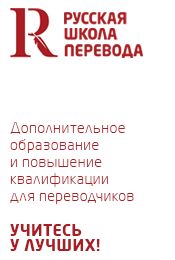Russian ‘No’: real, or a matter of culture?
Pavel Palazchenko, Russian Translation Company
Originally published in
Russia Beyond the Headlines.
See also: Found in Translation
With the use of phrases like “you are not right”, or the more idiomatic “that’s not so”, English-speaking Russians often seem a little negative. Andrei Gromyko, the Soviet-era foreign minister, was famously known as “Mr Nyet”, even though, eventually, he would strike a deal.
Is this apparent “negativism” a matter of culture? Is Russian culture the opposite of Japanese, in which they don’t say “no” even when they mean no? My answer is: perhaps.
It is actually true that many things that are commonly expressed in an affirmative way in English tend to acquire a negation in Russian. Where an American would ask you to hold on, a Russian would say “Ne kladite trubku” (literally, “Don’t lay down the receiver”). Where an Englishman would wish you to keep well, a Russian would probably put it this way: “Ne bolei” (“Don’t fall ill”). There are many ways of saying “take it easy” in Russian – and there is a “ne” in practically all of them. When we ask for directions or the time of day, we do it in a way that contains a negation, so that when some Russians unwittingly transplant the pattern into English it sounds very funny: “Can’t you tell me how to get to Leicester Square?” or: “Can’t you tell me what time it is?” It sounds as if one expects to get no reply, or is being deliberately impolite. In fact, in Russian it’s the opposite: a polite way of putting it.
It is here that things get really interesting: our “no” is not always a real no. The negative can be surprisingly flexible, sometimes serving to convey understatement where other languages would force you to call a spade a spade. For example, the Russian word “nevysokyi” (literally “not tall”) is used when a person is really – well, short. Some other adjectives with “ne” are also quite interesting. “Nebednyi” (literally “not poor”) is used a little sarcastically to describe a person who is quite wealthy. And – translators, beware! – “neveroyatnyi” (according to many dictionaries, “improbable” or “unlikely”) actually means “highly unlikely”, “almost impossible”, and in colloquial speech, “incredible”.
Rather than being a flat negation, “ne” can serve to make things rather vague. The Russian phrase that’s literally translated as “in a not distant future” can mean anything – tomorrow, in a few days, weeks, or even months. Don’t ask me why. The bottom line is that we are not as negative as we may sound. We, too, can be surprisingly flexible.
- Войдите на сайт для отправки комментариев







Последние комментарии
5 лет 33 недели назад
5 лет 44 недели назад
6 лет 21 неделя назад
6 лет 40 недель назад
7 лет 1 неделя назад
8 лет 25 недель назад
8 лет 25 недель назад
8 лет 48 недель назад
8 лет 48 недель назад
9 лет 6 недель назад